Lebanon crisis: Dozens wounded in second night of clashes in Beirut
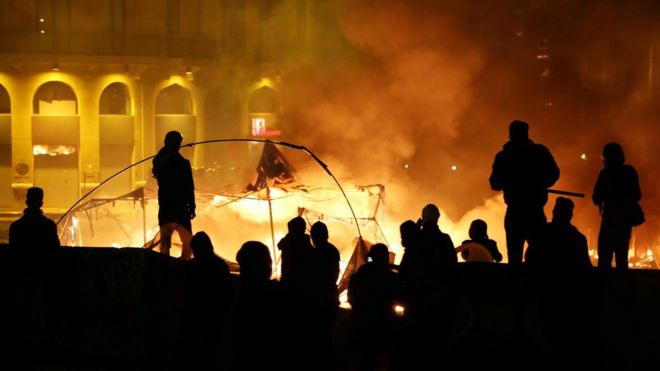 REUTERS
REUTERS
Riot police and anti-government demonstrators have clashed for a second night in the Lebanese capital, Beirut, leaving dozens of people wounded.
Protesters threw bottles and fireworks at officers, who responded with tear gas and water cannon.
Meanwhile, the interior minister ordered an inquiry into a crackdown on Saturday that left dozens more wounded.
The unrest has been fuelled by anger at the ruling elite over the ailing economy and corruption.
The protests triggered the resignation of Prime Minister Saad al-Hariri in October, but talks about a new government are deadlocked.
On Monday morning, President Michel Aoun postponed until Thursday formal consultations with parliamentary blocs on who to choose as prime minister.
Mr Hariri, who had been expected to be nominated despite withdrawing his candidacy last month, requested the delay to allow "more consultation", the presidency said.

- How did Lebanon get into such a deep crisis?
- The voices and faces of protests
- Stealing power to survive
Riot police forces were again deployed in large numbers on Sunday as thousands of protesters returned to the streets.
Lebanon's Internal Security Forces said they fired tear gas after demonstrators pelted them with fireworks and stones.
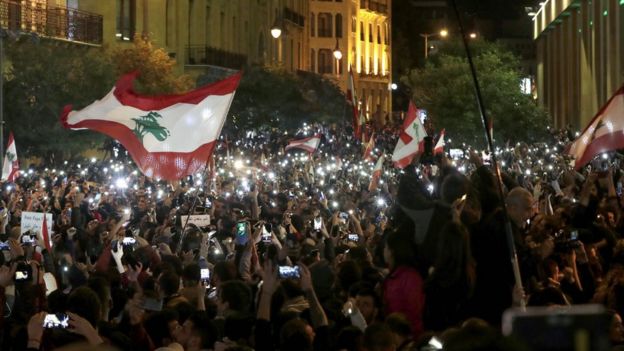 AFP
AFP
The Lebanese Civil Defense said it had treated 72 people for injuries at the scene and taken 20 others to hospital.
The Lebanese Red Cross meanwhile said it had treated 37 on site and taken 15 people to hospital, according to AFP news agency.
Protester Omar Abyad, a 25-year-old unemployed nurse, told Reuters news agency: "They [security forces] attacked us in a barbaric way, as if we're not protesting for their sake, their children."
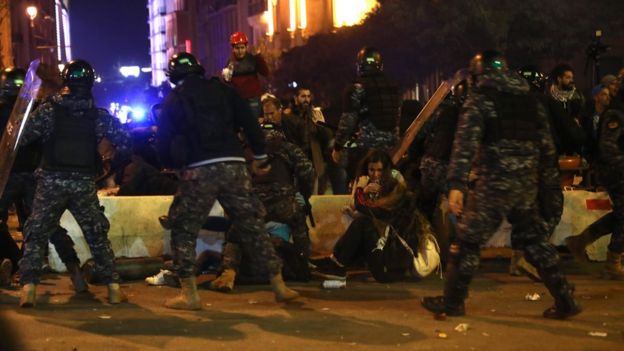 AFP
AFP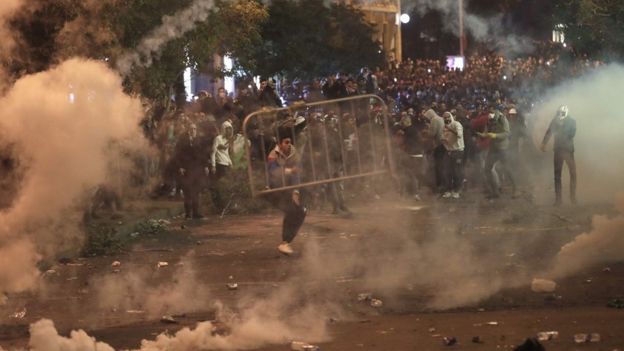 AFP
AFP
Interior Minister Raya al-Hassan urged the security forces to open a "rapid and transparent" investigation into Saturday's violence but warned against "infiltrators" seeking to use protests to spark "confrontations".
Diala Haidar, from the human rights group Amnesty International, said: "Security forces used excessive force to disperse an overwhelmingly peaceful protest. It only sends a clear message that security forces are above the law."
The protests have been the largest seen in Lebanon in more than a decade. They have cut across sectarian lines - a rare phenomenon since the devastating 1975-1990 civil war ended - and involved people from all sectors of society.
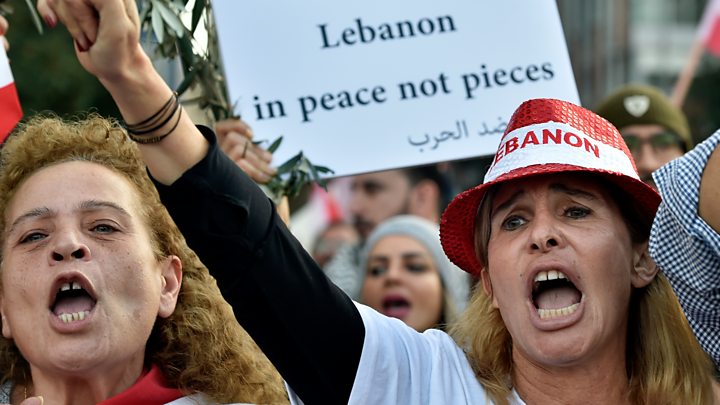
Demonstrators are angry at their leaders' failure to deal with a stagnant economy, rising prices, high unemployment, dire public services and corruption.
Their demands include an end to government corruption and the overhaul of the political system and the formation of an independent, non-sectarian cabinet.
Intel: Lebanon aid wrangling exposes divide in Trump administration
International

Hezbollah calls for ‘broadest possible’ Lebanese govt, including Christian party, to tackle crisis
International
Thousands return to parliament after crackdown in Beirut
International

WATCH dozens injured in street battles between protestors and police on the streets of Beirut
International
Lebanon clashes continue as resigned PM expected to be given job back
International
Lebanon counter-protesters clash with police in Beirut
International
Protracted street clashes engulf Beirut near protest camp
International
Lebanese security forces crack down on protesters in Beirut
International

Dozens of Lebanese protesters injured during Beirut rallies as ex-PM nears return
International
Lebanon's Hariri may be named PM but faces struggle to form government
International
Dozens injured in Beirut amid anti-government protests | TheHill
International
Lebanon interior minister orders probe after protest violence
International
Beirut clashes 'worst' since Lebanon protests began | Mena
International
Hezbollah chief warns Lebanon government could take time
International



No comments:
Post a Comment